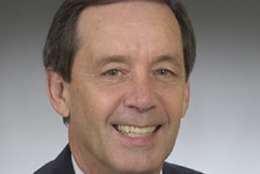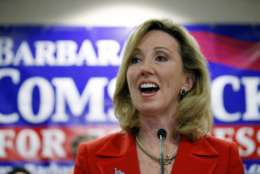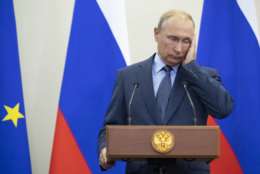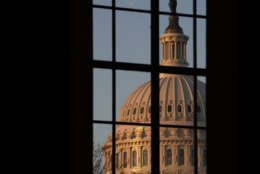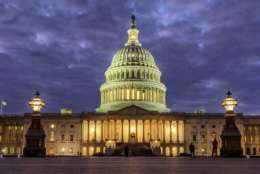Pay
-
A coalition of House Democrats from the District of Columbia, Maryland and Virginia are calling on congressional leadership to change course on the president's proposed federal pay freeze.
September 05, 2018 -
Relations between the Trump administration and federal employee unions have frayed. Bob Tobias, professor in the Key Executive Leadership Program at American University, offered some perspective on how things perhaps should go.
September 05, 2018 -
At one least House Republican is appealing to President Donald Trump to rescind his proposed pay freeze for federal employees next year.
August 31, 2018 -
More than 200 former national security professionals want answers from the Office of Personnel Management and the Director of National Intelligence about how and why USPS released the confidential national security questionnaire of congressional candidate Abigail Spanberger.
August 31, 2018 -
The upside to the Russia pension system is that it is indexed to inflation. The downside is that the average life expectancy for Russian men is reportedly 59.
August 31, 2018 -
President Donald Trump has announced his plans to freeze pay for federal civilian employees in 2019.
August 30, 2018 -
Many who have been comfortably stationed in Washington for decades are literally running for their political lives this year.
August 28, 2018 -
The president has a deadline that's fast-approaching. President Donald Trump must make a determination on federal pay by Aug. 31.
August 23, 2018 -
Retiring from federal service sounds simple, but federal retirement expert Tammy Flanagan says you've got more choices to make about your annuity than you might realize.
August 22, 2018 -
In today's Federal Newscast, a new report from the Veterans Affairs Department's inspector general finds VBA improperly processed and denied some 1,300 military sexual trauma claims in 2017.
August 22, 2018 -
A third-party arbitrator has ruled that unionized postal employees may continue to take unpaid leave to campaign for political candidates, but the Postal Service says it plans on challenging the ruling.
August 22, 2018 -
Depending on which experts you ask, federal civil servants are either paid 30-plus percent more than the average private sector employee, or 30-plus percent less.
August 21, 2018 -
Federal employees on the road for work-related travel could see their per diem dining dollars stretch a little further in fiscal 2019.
August 14, 2018 -
Many experts say that the current bull market began in March 2009 and if it lasts through this month it will be the longest in history. Others say it didn’t start until much, much later.
August 09, 2018 -
Federal News Radio reporters Nicole Ogrysko and Jory Heckman join host Mike Causey on this week's Your Turn to discuss what’s happening and not happening with pay, shutdowns and appropriations on Capitol Hill.
August 08, 2018


